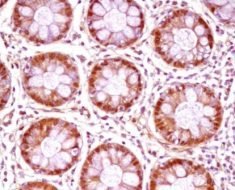High cholesterol: Nutritionist reveals top prevention tips
We use your sign-up to provide content in ways you’ve consented to and to improve our understanding of you. This may include adverts from us and 3rd parties based on our understanding. You can unsubscribe at any time. More info
A collaboration between researchers from Keio University, Japan, and the George Washington University conducted a systematic review and meta-analysis of a plant-based diet and plasma lipids (i.e. cholesterol levels). Observing data from 30 observational studies and 19 clinical trials, all showed that consumption of vegetarian diets was associated with lower cholesterol levels compared to omnivorous (plant and animal) diets. The researchers noted: “Plant-based diets are associated with decreased total cholesterol, low-density lipoprotein cholesterol, and high-density lipoprotein cholesterol, but not with decreased triglycerides.”
Low-density lipoprotein (LDL) is referred to as “bad” cholesterol by the Centres for Disease Control and Prevention (CDC).
The American Heart Association elaborated: “[LDL cholesterol] contributes to fatty build-ups in arteries (atherosclerosis).
“This narrows the arteries and increases the risk for heart attack, stroke and peripheral artery disease (PAD).”
Meanwhile, high-density lipoprotein (HDL) cholesterol is considered the “good” kind because it may “protect against heart attack and stroke”.

The charity explained: “High-density lipoprotein (HDL) carries low-density lipoprotein (LDL) cholesterol away from the arteries and back to the liver, where the LDL is broken down and passed from the body.”
The NHS verified that total cholesterol levels should be five or below in the blood test results.
HDL (good cholesterol), specifically, should be one or above; LDL (bad cholesterol) should be three or below.
A total cholesterol blood test also measures non-HDL bad cholesterol and triglycerides.
“You might be able to get separate results for your good and bad cholesterol and triglycerides,” the health service stated. “Ask your doctor or nurse.”
What are triglycerides?
Heart UK – the cholesterol charity – explained: “Triglycerides are a type of blood fat.
“They are our main source of energy and are essential for good health. But if you have too much in your blood, this can raise the risk of heart disease.”
Triglycerides can be found in meat, Heart UK added, so eradicating meat from the diet could potentially lower levels.

The charity said: “Eating plenty of plant foods is a key part of managing raised cholesterol.
“This means eating plenty of fruit, vegetables, wholegrain cereals, peas, beans, lentils and nuts and choosing foods low in saturated fat and salt.”
A key dietary approach to lower cholesterol levels involves five portions of fruits and vegetables daily, wholegrain starchy foods at every meal, a variety of protein-rich plant foods, and healthy fats.
Wholegrain starchy foods include wholemeal chapattis, brown rice, wholemeal pasta, and quinoa.

Other starchy foods:
- Wholemeal breads
- Oats
- Barley
- Popcorn (without added salt and sugar)
- Buckwheat
- Amaranth
Protein-rich plant foods include: beans, peas, lentils, tofu, soya mince, seitan, unsalted nuts, and seeds.
Healthy fats include olive oil, rapeseed oil, sunflower oil, corn oil, soya oil, peanuts, nuts, seeds and avocados.
As well as following a healthy vegetarian diet to lower cholesterol levels, it is also important to control portion sizes.
Source: Read Full Article





